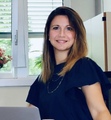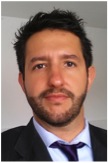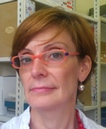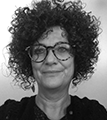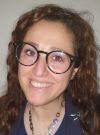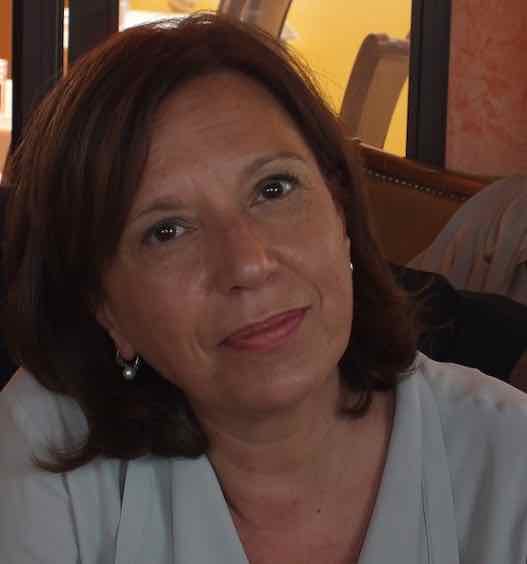Studying at the University of Verona
Academic calendar
The academic calendar shows the deadlines and scheduled events that are relevant to students, teaching and technical-administrative staff of the University. Public holidays and University closures are also indicated. The academic year normally begins on 1 October each year and ends on 30 September of the following year.
Course calendar
The Academic Calendar sets out the degree programme lecture and exam timetables, as well as the relevant university closure dates..
| Period | From | To |
|---|---|---|
| MED ING annuale | Oct 2, 2024 | Sep 30, 2025 |
| MED ING 1° semestre | Oct 2, 2024 | Dec 20, 2024 |
| MED ING 2° semestre | Jan 2, 2025 | Sep 30, 2025 |
| Period | From | To |
|---|---|---|
| Tutti i Santi | Nov 1, 2024 | Nov 1, 2024 |
Exam calendar
To view all the exam sessions available, please use the Exam dashboard on ESSE3. If you forgot your login details or have problems logging in, please contact the relevant IT HelpDesk, or check the login details recovery web page.
Should you have any doubts or questions, please check the Enrollment FAQs
Academic staff
Study Plan
The Study Plan includes all modules, teaching and learning activities that each student will need to undertake during their time at the University.
Please select your Study Plan based on your enrollment year.
1° Year
| Modules | Credits | TAF | SSD |
|---|
2° Year It will be activated in the A.Y. 2025/2026
| Modules | Credits | TAF | SSD |
|---|
3° Year It will be activated in the A.Y. 2026/2027
| Modules | Credits | TAF | SSD |
|---|
4° Year It will be activated in the A.Y. 2027/2028
| Modules | Credits | TAF | SSD |
|---|
5° Year It will be activated in the A.Y. 2028/2029
| Modules | Credits | TAF | SSD |
|---|
6° Year It will be activated in the A.Y. 2029/2030
| Modules | Credits | TAF | SSD |
|---|
| Modules | Credits | TAF | SSD |
|---|
| Modules | Credits | TAF | SSD |
|---|
| Modules | Credits | TAF | SSD |
|---|
| Modules | Credits | TAF | SSD |
|---|
| Modules | Credits | TAF | SSD |
|---|
| Modules | Credits | TAF | SSD |
|---|
Legend | Type of training activity (TTA)
TAF (Type of Educational Activity) All courses and activities are classified into different types of educational activities, indicated by a letter.
Neurology (It will be activated in the A.Y. 2028/2029)
Teaching code
4S012590
Credits
7
Scientific Disciplinary Sector (SSD)
-
Learning objectives
CLINICAL NEUROLOGY
The objective of the course is the acquisition of the knowledge and skills that are required for the recognition of the clinical presentation of the main neurological diseases, the diagnosis, the choice of pharmacological, surgical and rehabilitative therapy, the implementation of correct follow-up -up of the neurological patient.
The student will get knowledge on the use of engineering and IT tools such as artificial intelligence and machine learning for the analysis of big data according to a multiomics and personalized medicine and therapy perspective, sensors and applications for early diagnosis and monitoring of neurological pathologies, telemedicine applications for the diagnosis, therapy, rehabilitation and follow-up of the neurological patient.
PHYSICAL MEDICINE AND REHABILITATION MODULE
The module aims to provide knowledge regarding some of the most interesting fields of Physical Medicine and Rehabilitation. At the end of the module, the student should be familiar with the main techniques of neurological and motor rehabilitation; the health objectives of rehabilitative practices; the available scientific evidence supporting various rehabilitative practices; timing and effectiveness of rehabilitative practices.
NEUROSURGEY MODULE
The aim of the course is the acquisition of the necessary knowledge and skills: for the recognition of the clinical presentation of the main diseases of neurosurgical interest, both cranial and spinal, for the formulation of the diagnosis, for the choice of pharmacological and surgical therapy, for the implementation of correct follow-up of the neurosurgical patient. The course also aims to provide knowledge regarding the technologies currently in use for the diagnosis and treatment of neurosurgical pathologies.
PRACTICAL TEACHING AND NEUROLOGY SEMINARS
The objectives of the internship are to provide practical knowledge on the main neurological conditions, on the anamnestic approach, on the neurological examination, and on the diagnostic process of the most common conditions in the clinical setting.
The objectives of the seminars are to interactively present the neurological examination, some common neurological syndromes, and the application of engineering and IT tools to the patient with neurological diseases.
Examination Methods
The objective of the tests is to ascertain the knowledge of the topics in the program, the analytical and practical ability, the appropriateness of the language. The contents of the tests focus on the topics of practical teaching and on the verification of the knowledge of the main neurological diseases and syndromes presented during the frontal teaching. The test is oral and will last at least 30 minutes overall. There are no intermediate tests.
Evaluation criteria
The student should show to be autonomous in the collection of medical history data, to be able to recognize signs and symptoms of acute and chronic neurological diseases, and to correctly use the terminology related to the discipline. The student should know the drugs used in the main neurological diseases and set the correct therapy in terms of dosages, duration, methods of administration, monitoring and detection of adverse reactions, acquire the method of clinical analysis to formulate a diagnosis; interpret signs and symptoms of disease according to pathophysiology; evaluate the disease onset modalities, its course and any associated pathologies, to identify the possible causes and pathogenetic mechanisms; select the complementary tests useful for the diagnosis. Finally, the student will show the acquisition of skills on the use of the main IT, digital, internet of medical things and telemedicine tools for the diagnosis, therapy and monitoring of the neurological patient. The evaluation of the final grade is expressed in thirtieths based on the weighted average of the marks obtained in the oral tests covering topics in neurology (max 24/30), neurosurgery and neurorehabilitation (max 6/30). Regarding the test for practical teaching, the student will receive a positive or negative judgment. A negative judgment does not preclude the possibility of continuing the examination but will negatively affect the evaluation. The evaluation of the final grade is expressed in thirtieths based on the weighted average of the marks obtained in the oral tests covering topics in neurology (max 24/30), neurosurgery and neurorehabilitation (max 6/30). Regarding the test for practical teaching, the student will receive a positive or negative evaluation. A negative evaluation does not preclude the possibility of continuing the examination but will negatively affect the evaluation.
Free choice courses
Modules not yet included
Career prospects
Module/Programme news
News for students
There you will find information, resources and services useful during your time at the University (Student’s exam record, your study plan on ESSE3, Distance Learning courses, university email account, office forms, administrative procedures, etc.). You can log into MyUnivr with your GIA login details: only in this way will you be able to receive notification of all the notices from your teachers and your secretariat via email and soon also via the Univr app.
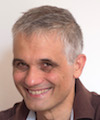
 giuseppe.bertini@univr.it
giuseppe.bertini@univr.it
 045-802-7682
045-802-7682
